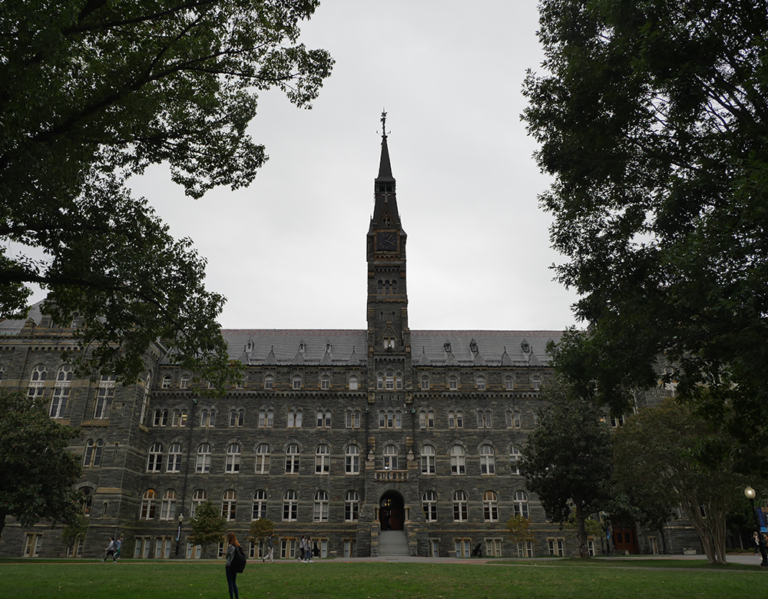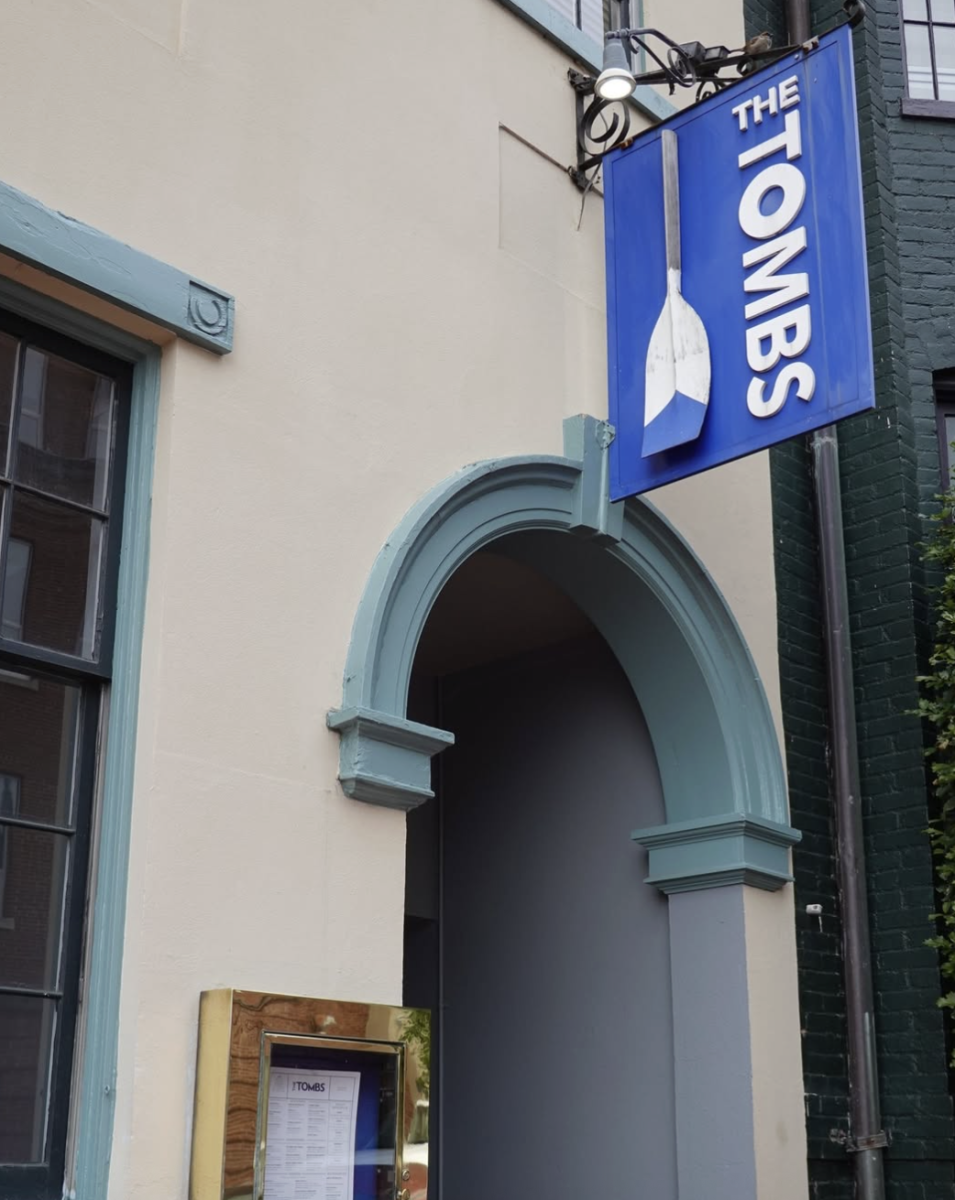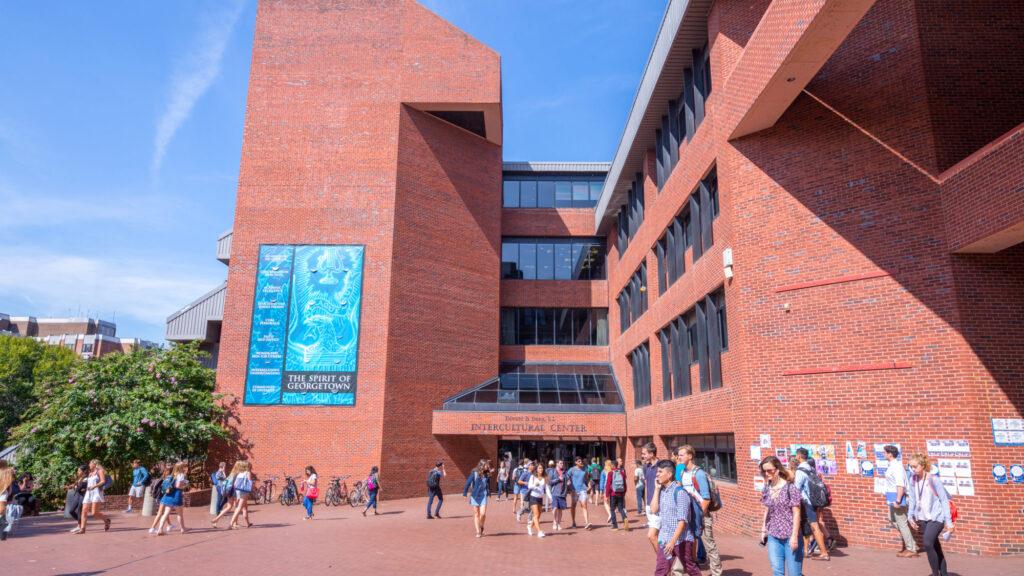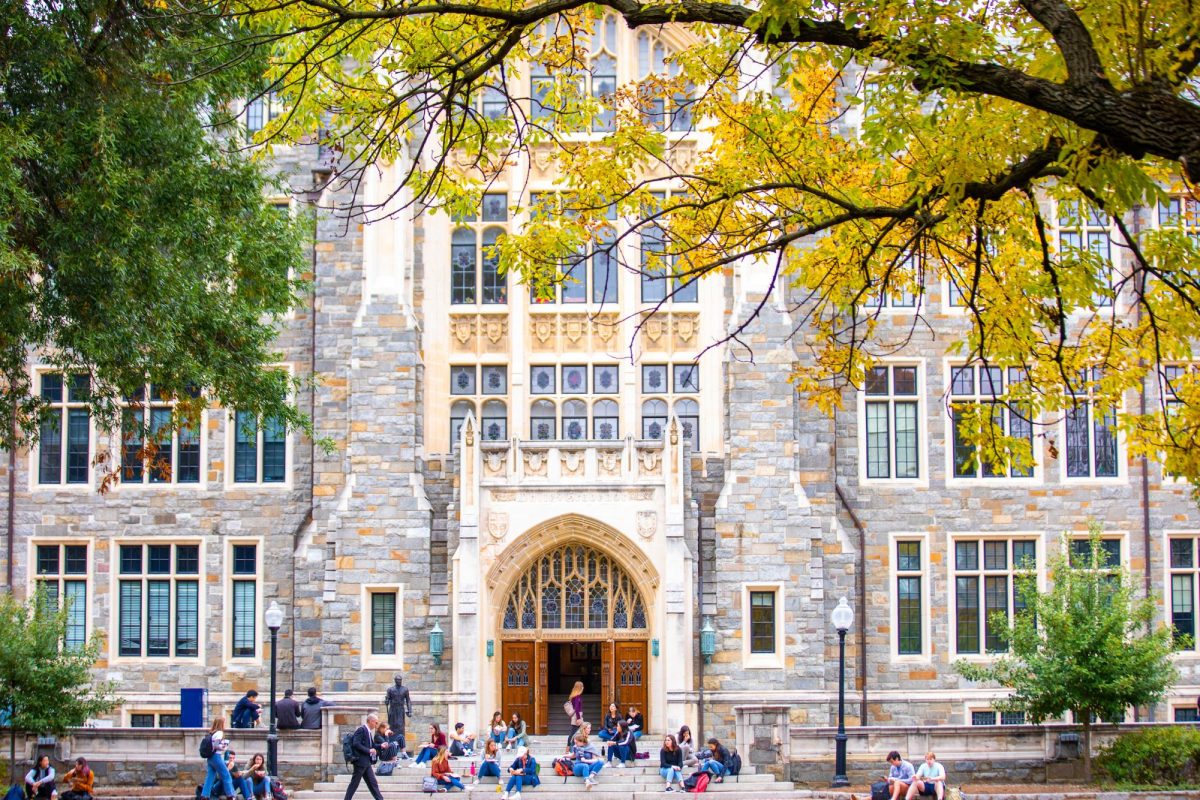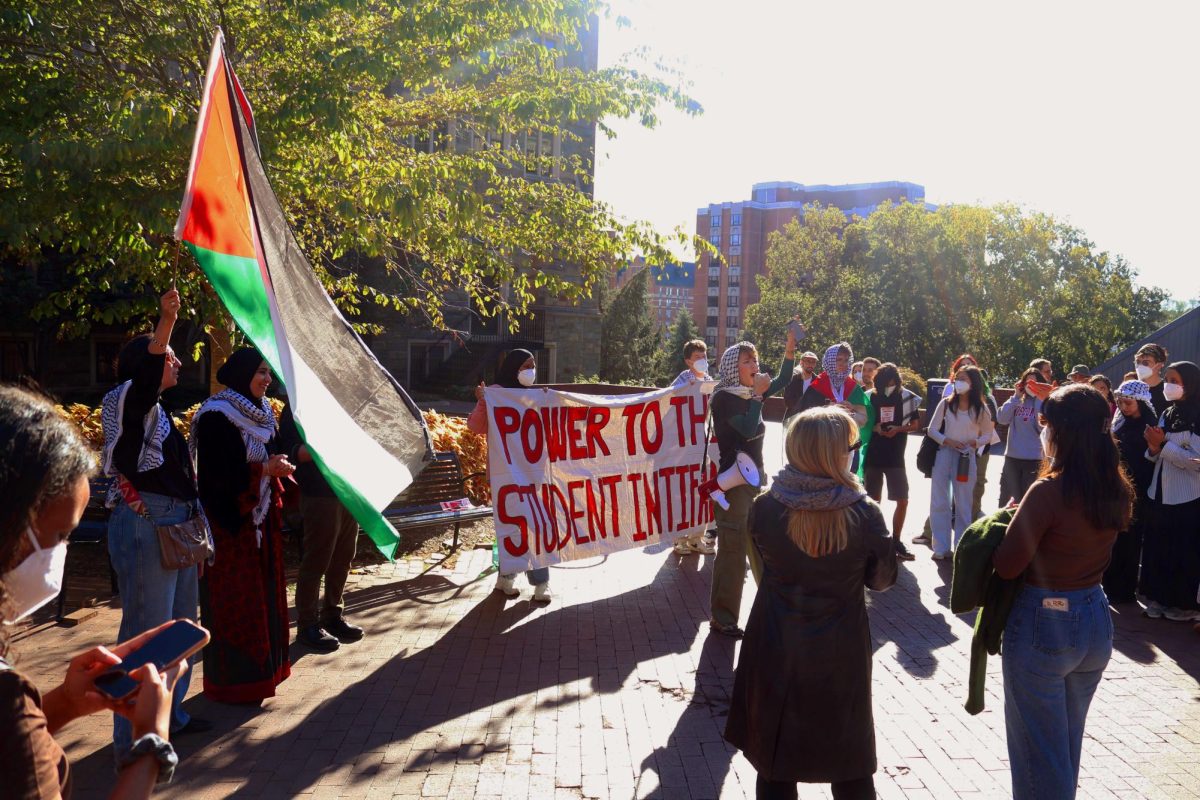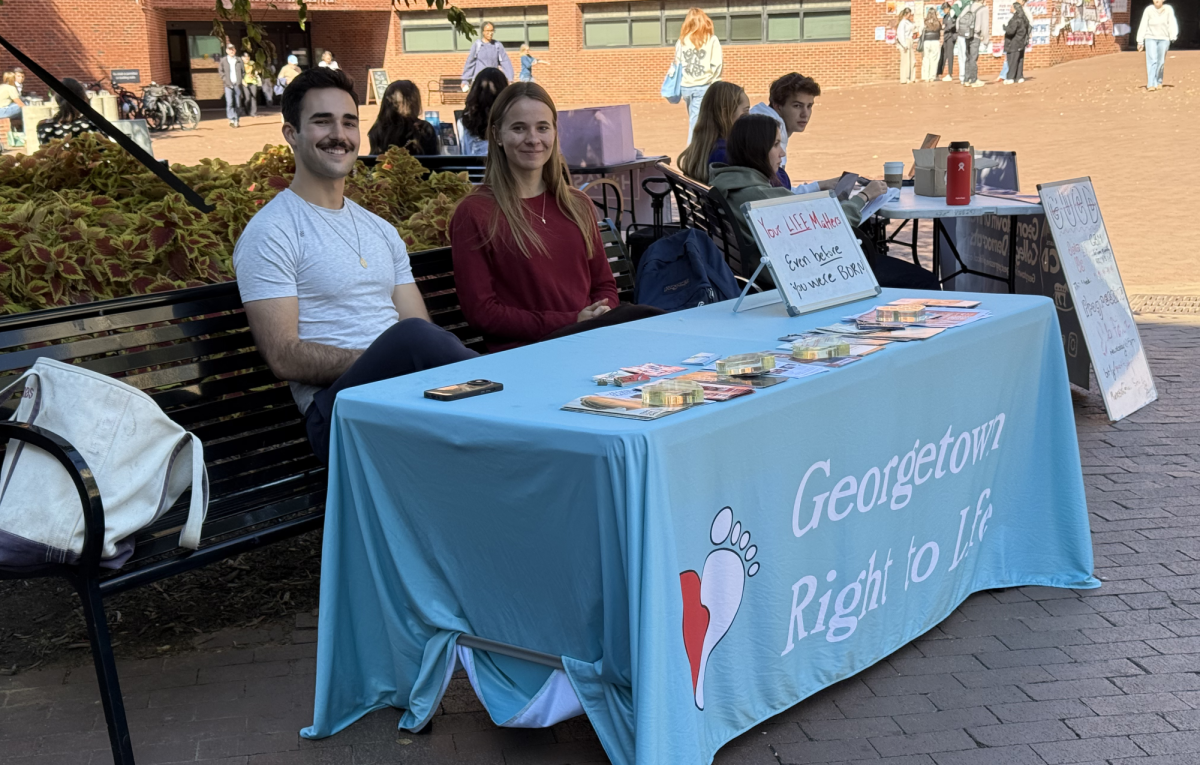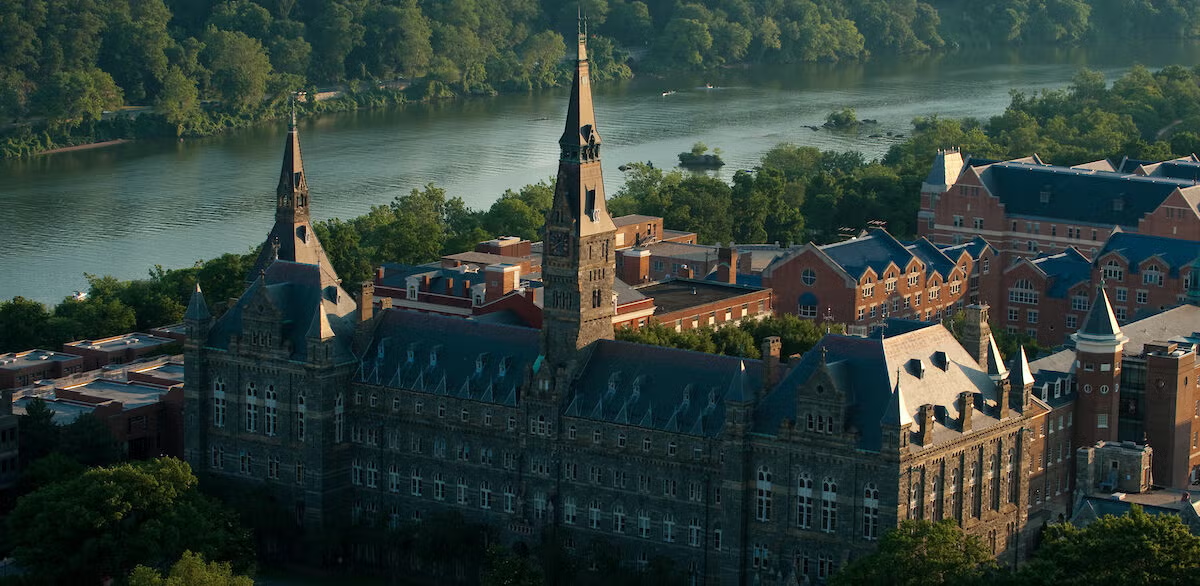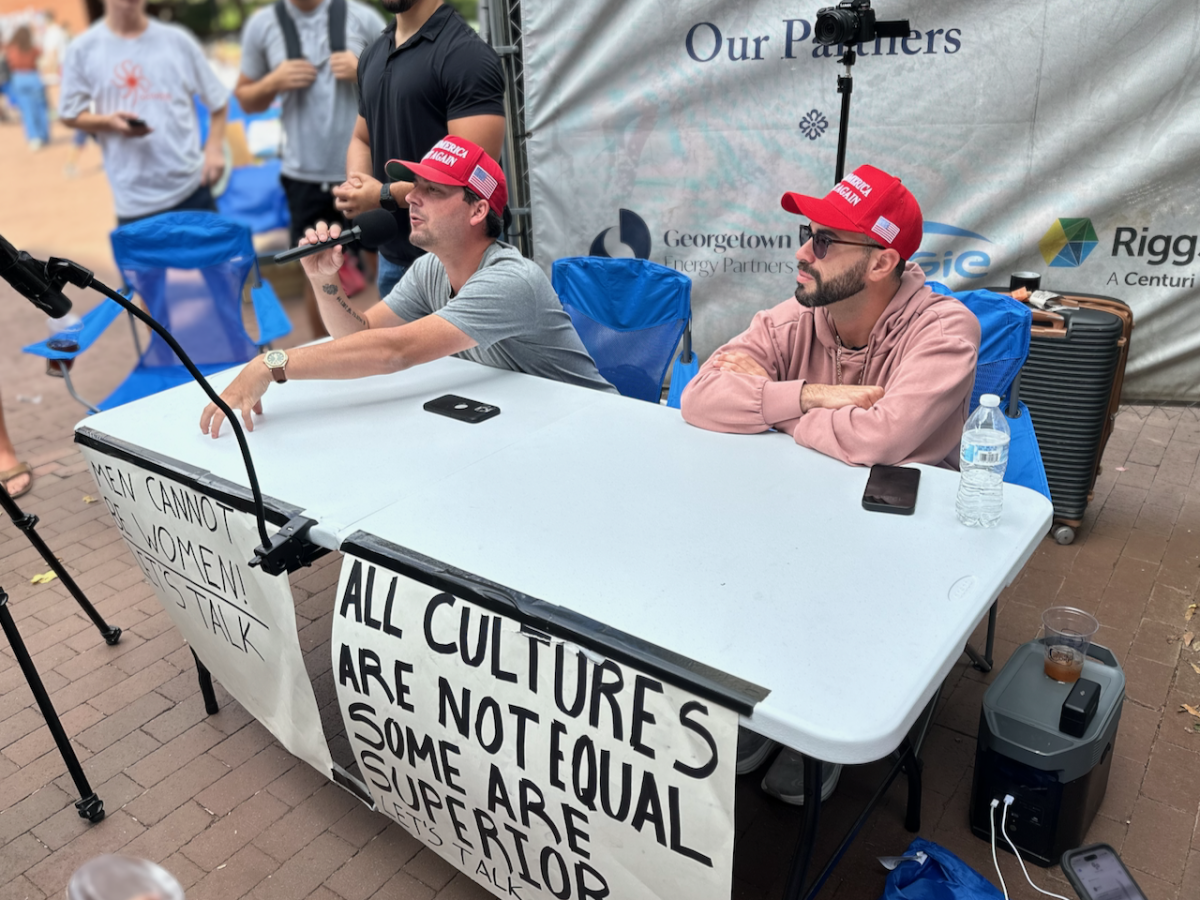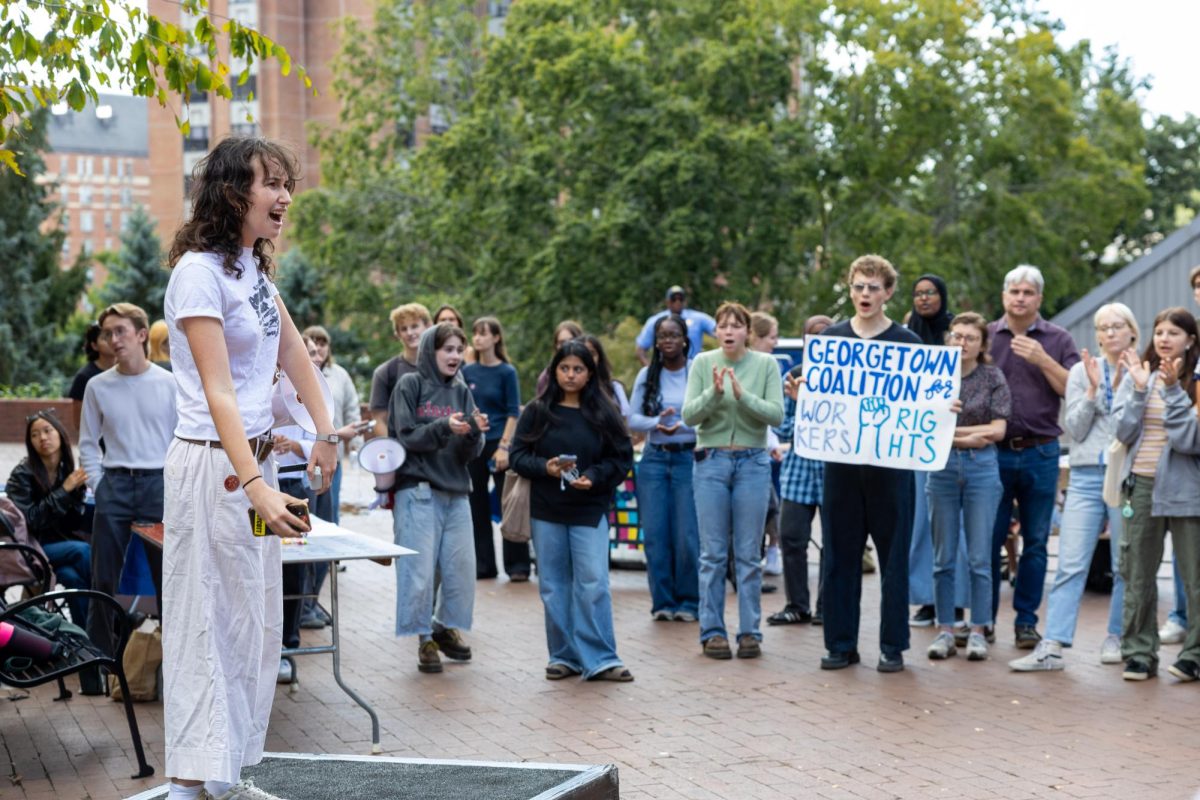CW: This article references sexual assault. Please refer to the end of the article for on- and off-campus resources.
Georgetown University’s third campus climate survey revealed statistically significant decreases in rates of sexual assault against undergraduate women, though certain rates remain higher than at other universities, according to an Oct. 21 email sent by the university administration to the Georgetown community.
According to the survey, 25.3% of undergraduate women who “experienced penetration or sexual touching by physical force and/or inability to consent or stop what was happening” since entering college, a decrease from 31.6% in 2019 but a rate significantly higher than other surveyed colleges’ average of 18.9%. In addition, 36.6% of undergraduate women experienced harassment, statistically significantly higher than the other schools’ average of 29.8%.
The percentage of undergraduate women who “experienced penetration or sexual touching without voluntary agreement” since entering college had a statistically significant decrease from 17.2% to 12.1%.
According to the email, sent by Provost Robert M. Groves, Vice President of Diversity, Equity and Inclusion and Chief Diversity Officer Rosemary Kilkenny (LAW ’87) and Vice President Joseph Ferrara, the chief of staff to University President John J. DeGioia (CAS ’79, GRD ’95), the university will continue to work to address sexual misconduct on campus.
“These numbers remain far too high,” the administrators wrote in the email. “While we are seeing progress in several areas, we still have significant work to do to ensure all members of our community are treated with dignity and respect. It is imperative we deepen our collective efforts to eradicate sexual misconduct in our community.”
The research firm Westat administered the survey as part of its national Higher Education Sexual Misconduct and Awareness (HESMA) survey at 10 universities between Feb. 1 and Mar. 20 this year.
“We have conducted these surveys to understand the prevalence of sexual misconduct in our community and strengthen our collective responses,” Groves, Kilkenny and Ferrara wrote. “Each survey has provided important data for us to measure our progress, and it is clear that there is significantly more work for us to do as a community.”
The administrators said the university has continuously worked to eradicate sexual misconduct on campus.
“Over the past two-and-a-half decades, since we hired our first Title IX coordinator in 1997, we have expanded our efforts, with a specific focus on education and prevention, support for those impacted by sexual misconduct, and a prompt and equitable process to address complaints of sexual misconduct,” Groves, Kilkenny and Ferrara wrote.
The survey also found that 10.3% of undergraduate women “experienced penetration or sexual touching by physical force and/or inability to consent or stop what was happening” this academic year, a decline from 15.3%; 4% “experienced penetration or sexual touching without voluntary agreement” this academic year, a decrease from 8%; and 8.3% experienced intimate partner violence, a decrease from 12.7%.
Of all students, undergraduates and graduates, 2.3% “experienced penetration or sexual touching without voluntary agreement” this academic year, a decrease from 3.6% in 2019, while 6.3% experienced stalking, an increase from 5.1% in 2019.
“We each have a responsibility to care and support one another as members of this community,” Groves, Kilkenny and Ferrara wrote. “As we continue our work to strengthen our resources and responses, we invite all members of our community to contribute positively to fostering an environment that is free of sexual misconduct and harassment. This is work we must do together.”
On-campus resources include Health Education Services (202-687-8949) and Counseling and Psychiatric Service (202-687-6985); additional off-campus resources include the D.C. Rape Crisis Center (202-333-7273) and the D.C. Forensic Nurse Examiner Washington Hospital Center (844-443-5732). To report sexual misconduct, you can contact Georgetown’s Title IX coordinator (202-687-9183) and [email protected] or file an online report here. For more information, visit sexualassault.georgetown.edu. If you or anyone you know would like to receive a sexual assault forensic examination or other medical care — including emergency contraception — call the Network for Victim Recovery of D.C. (202-742-1727).



